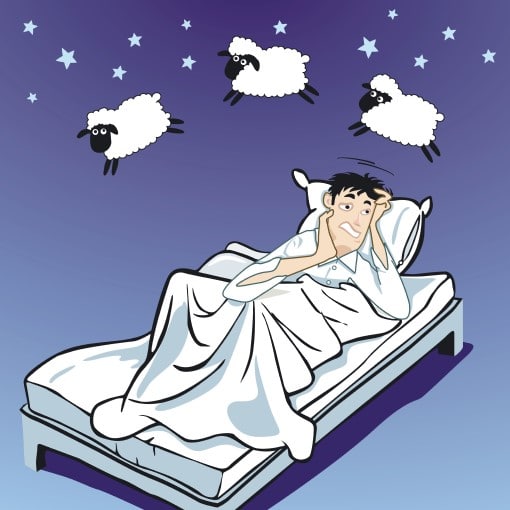
The Ultimate survival guide to getting sleep during holidays
By Jason Wooden, PhD and Kristal McKinney, LICSW, CMHS | January 16, 2020
Do you struggle with sleep during the holidays? In this article, we talk about the holiday sleep killers – changes in your everyday routine, sleeping in a new environment, and jet lag. Holiday stress, anxiety, and depression can also keep you awake.
There’s lots you can do to keep your sleep on track and wake up feeling more rested. Your options include better sleep hygiene, creative planning, travel sleep tips, stress management tricks, and activities to keep you from feeling too down.
We look forward to holidays, but not what it does to wreck our sleep.
Whether it’s 4th of July, a long weekend over Memorial day, or Thanksgiving, holidays can leave you stressed out and struggling to get sleep.
And let’s not forget the biggest one of them all, the Christmas and New Year’s break which can involve much longer stretches of insomnia.
Unfortunately, many of the things we like about holidays can cause problems for your sleep.
Lots of great food, your favorite activities, social outings, late-night conversations and movies – they all can come at a cost if you’re not careful.
There’s also the curse of travel with more people than ever before flying the friendly skies.
According to the CDC, 1 in 3 Americans are sleep deprived. Our guess is that it’s probably worse during the holidays.
Here’s the good news – there are simple things you can do to fight insomnia and feel more rested.
There’s no rule you have to spend the holidays as a sleep-deprived zombie.
So, let’s talk about the holiday sleep killers and what you can do to keep your sleep on track.

Holiday sleep killer 1: Change in routine keeping you awake
If you’re struggling to sleep during a holiday, here’s the first thing to a serious look at.
All the great food, social and religious activities, spending time with friends and family – this is why so many people enjoy holidays.
This is also why holidays can be so challenging for sleep.
Too much rich food or alcoholic beverages at the wrong time can come back to bite you during night.
If you’re overbooked with late night outings, it’s easier to get away from your normal sleep routine.
Staying up late with guests can be fun but can come at a cost to your sleep.
All those changes to what you normally do can wreck your sleep which is why sleep hygiene is even more important during holidays.
Sleep hygiene is what you do during the day, evening, and at bedtime that can set the stage for a restful night. If you ignore it, you may be unknowingly sabotaging your sleep.
For better sleep hygiene during holidays, you should:
- Stick to regular wake up and bed times
- Don’t overdo evening food and drinks
- Avoid late-night stimulants such as caffeine
- Get outdoor natural light to help keep your body clock on schedule
- Stay physically active
- Give yourself time to settle down
- Keep your sleeping space quiet, dark, and cool
This may seem especially challenging with all the distractions, but it’s doable with some planning and creativity.
Avoid getting overtired:
How about sneaking in an early afternoon nap to keep yourself from getting run down and overtired on those nights you’re going to be up later than usual? (If you do this, the National Sleep Foundation recommends that you keep it short and earlier in the day after lunch.)
Physical activity:
Physical activity can improve your sleep quality and how long you sleep. In studies, even a brisk walk can lead to better sleep. Here’s an idea to sneak in some physical activity. Invite your guests along for a walk in the park.
Sleep-friendly evening snacks:
Stay away for high carbs, high sugar, high fat, and spicy foods. That includes late night favorites like pizza, nachos with cheese and salsa, sugary cookies, chocolate, ice cream, spicy hot wings, and soda.
As an alternative, you can serve popcorn, whole grain crackers with cheese, your favorite fruits, nuts, humus with veggies, or fruit with cheese.
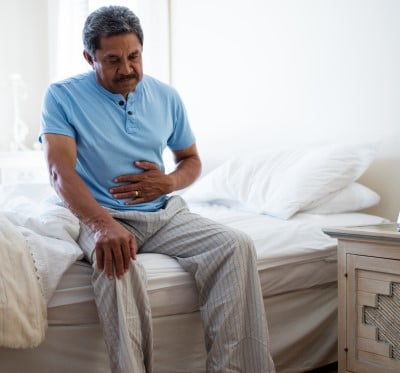
Settling down in the evening:
Plan some quiet relaxing activities with your guests. It could be hanging out listening to quiet music, chatting over herbal tea, or watching a fun low key movie.
Maintaining a healthy sleep environment:
If you’re dealing with rowdy late night family or friends, you can use earplugs or white noise so they don’t keep you up. White noise works by masking other sounds that may disturb your sleep.
You can try a white noise machine, a white noise phone app, or running a fan. A couple earplugs and white noise options are listed here.
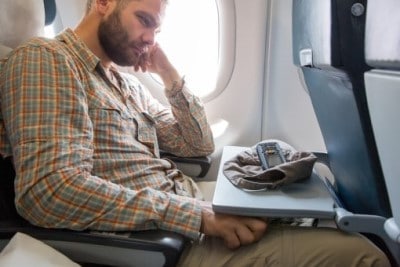
Holiday sleep killer 2: Travel keeping you awake
Holiday travel comes with the dual challenge of a change in sleep environment and jet lag. Both can wreck your sleep.
Sleeping in a bed not your own can take some getting used to. And whether you’re staying at someone’s house or a hotel, you may also have to deal with nuisance noise and excessive light outside of your control.
Remember, for sleep hygiene, you want your bedroom quiet, cool, and dark.
Here’s what you can do to improve your sleep environment:
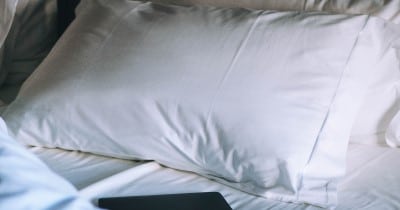
1) Pillows:
According to a National Sleep Foundation survey, 7 in 10 Americans rated pillows as having a big impact on their ability to get a good night of sleep. If you vulnerable to neck or back pain, having the wrong pillow can certainly make it harder to sleep.
And if you’re dealing with obstructive sleep apnea or acid reflux, having your head elevated may be even more important.
Bringing your own pillow on trips is growing in popularity. If you’re staying at a hotel or someone’s house, you can ask if they have pillows with different levels of firmness.
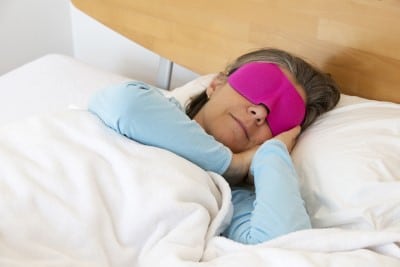
2) Sleep masks:
Nuisance light can keep you from falling asleep, affect your sleep quality during the night, and cause you to wake up way too early. Sleep masks can a big difference.
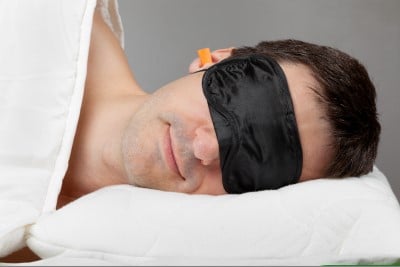
3) Earplugs:
Nuisance noise can also keep you from falling asleep, ruin your sleep during the night, and result in premature wakes. Ear plugs can help you deal with snoring, late night boisterous home or hotel noise, and sounds from a busy city street.

4) Hotel selection:
If staying at hotel, check whether the rooms have blackout shades and whether it’s near a noisy venue or freeway. You may want to look for a hotel in a less urban neighborhood.
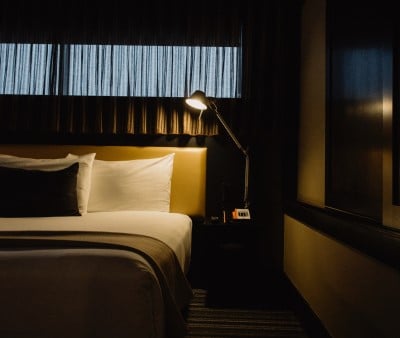
5) Room selection:
For better sleep, look for a room in a quieter area of the hotel – on a higher floor and away from vending machines, elevators, exits, laundry facilities, and housekeeping closets. If you’re not a smoker or have allergies, request a non-smoking room.
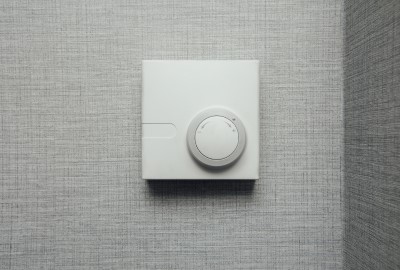
6) Adjust the temperature:
Experts recommend you sleep in a cool bedroom environment (60 to 67 degrees Fahrenheit). Most hotels allow you to directly set the room temperature.
If you’re staying with someone else, it’s worth asking if they would be okay with lowering the temperature a bit or if you cracked a window open.
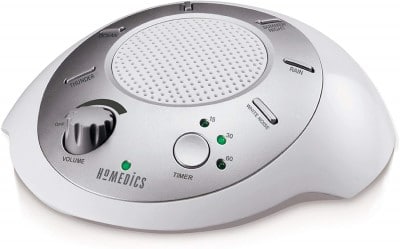
7) White noise:
We mentioned white noise earlier. There are phone apps you can try and portable white noise machines. (If staying with someone, you can also ask if they have an electric fan handy.)
Now, let’s talk about the other travel issue, jet lag.
Flying across three or more time zones can upset the body’s natural sleep-wake clock. Your body tells you to sleep when you should be up and tells you to stay awake when you should be sleeping.
Meanwhile, you’re left feeling miserable, over-tired, moody, and unable to function during the day.
There’s no question about it, jet lag can take the fun out of the holidays.
Here are your options to fight it:
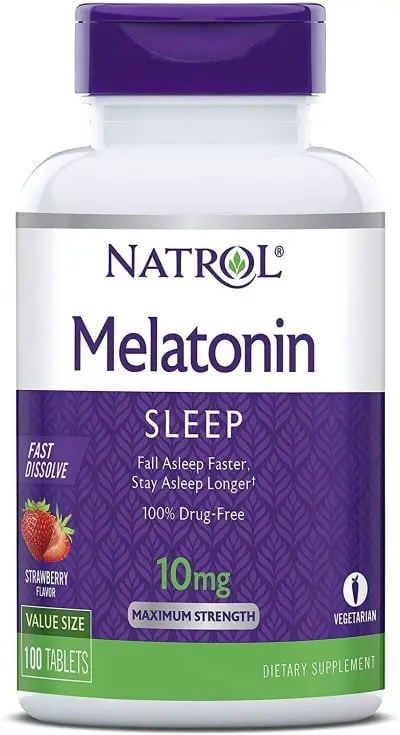
1) Melatonin supplements:
Melatonin is a hormone your body makes that helps control the sleep-wake cycle. It rises at night which is one of the reasons you feel sleepy.
Research suggest that melatonin supplements can help with jet lag and they have become popular as a way to help the body to reset to a new time zone. Be sure to check with your doctor about whether it’s right for you and the best way to use.

2) Light therapy:
Bright natural daylight tells the body when it’s time to be awake and has been shown in studies to promote sleep. To help reset your body clock, open up the windows and flood the room with daylight. You can also go outside for sunshine.
There are now high tech alternatives you can try, including portable light machines and light therapy glasses. They’re designed to emit blue wavelength light which mimics sunlight without damaging the eye.
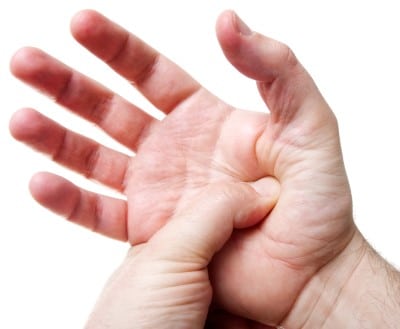
3) Acupressure:
Acupressure has been described as acupuncture without the needles. It uses firm pressure on specific points on the body.
Self-administered acupressure has been shown in studies to help relieve insomnia and may help reset the body’s clock to local time. There’s also the Uplift phone app which is designed to help travelers use acupressure to ease the effects of jet lag.
Learn more:
Can acupressure and acupuncture really help jet lag?
5 Pressure Points for Sleep (healthline.com)
Uplift Phone App: iPhone android
Prevent Jet Lag with Acupressure by Alicia White (available online)

4) Homeopathic remedies:
Online you’ll find all sorts of homeopathic supplements designed to fight jet lag. Keep in mind most have not been tested in clinical studies, but they may help.
You can check with a complementary health specialist (i.e., naturopathic physician, alternative medicine practitioner).
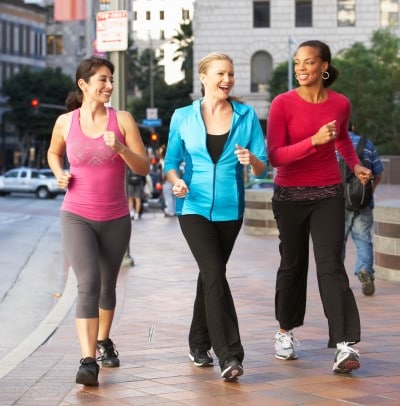
5) Physical activity:
We mentioned earlier that physical activity can promote quality sleep. Research suggests that moderate exercise may also help more directly with jet lag.
Depending on when you exercise, you can either delay or move up the body clock. Exercise outdoor and you get the added benefit of natural daylight exposure.
Tips to keep holiday jet lag from wrecking your sleep:
- Get plenty of physical activity and rest before you leave
- Start going to bed an hour or two later (if traveling west) or earlier (if traveling east)
- Avoid caffeine and excess alcohol
- Change your watch to your destination time zone
- Break up a long trip with a stop in the middle
- Hydrate before, while traveling, and once you arrive
- Avoid heavy meals while traveling and once you arrive
- Stay up to 10P local time
- If feeling sleepy, keep your naps short (20-30 minutes)
Sources: CDC, National Sleep Foundation
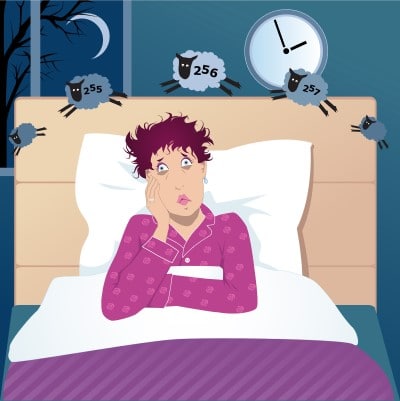
Holiday sleep killer 3: Stress, anxiety, or depression keeping you awake
So far, we’ve talked about changes in routine and travel, but we shouldn’t forget about another reason people may struggle with sleep on holiday – stress, anxiety, and depression.
In an American Psychological Association survey, 38 percent of people said their stress level increased during the holiday season. Trying to do too much and spending too much can be stressful.
Travel can wear you out. Family issues can also bubble up while everyone’s together which causes stress and anxiety. And for some, holidays can be a time of sadness and loneliness, especially if you’re away from family or grieving a loved one.
Stress, anxiety, and depression are all bad for sleep. Poor sleep can make all three worse.
There are practical things you can do to keep everything more manageable and less stressful:
- be realistic about what you can do
- put yourself on a budget
- don’t over commit
- avoid family conflict, focus on the positives
- set boundaries with others (say no to people pleasing!)
- give yourself time outs when needed
If you’re traveling, figure out what you can do to make your trip less stressful. That may mean avoiding red eye flights and tight connections.

To keep from getting too down, get out and do something. It could be volunteering, taking a nature walk, watching a funny program, or things that you enjoy.
And don’t be shy about getting help from a mental health professional and reaching out to your support systems. Friends and family can provide a safety net.
Finally, since poor sleep can make things worse, you want to avoid getting into a downward spiral. That’s why it’s so important that you do everything you can to keep your sleep on track during the holidays.
3 things to remember about sleep and holidays:
- Good sleep hygiene is even more important
- If traveling, have a plan to prevent jet lag
- Figure out ahead of time what you can do for stress and depression
You may also be interested in:
Sources:
1. “Napping”, National Sleep Foundation website
2. Increased physical activity improves sleep and mood outcomes in inactive people with insomnia: a randomized controlled trial. J Sleep Res. 2015 Oct;24(5):526-34.
3. “Bedroom Poll Summary of Findings”, National Sleep Foundation
4. Effects of light on human circadian rhythms, sleep and mood. Somnologie (Berl). 2019 Sep;23(3):147-156.
5. Acupressure effect on sleep quality: A systematic review and meta-analysis., Sleep Med Rev. 2018 Feb;37:24-34.
6. “Exercise Can Shift Body Clock, Possibly Countering Jet Lag and Other Circadian Disorders”,2019, Sleep Review website
Connect with us:
About Us
Better Sleep Simplified® was founded as a place for you to get clear and well-researched information.
Our goal is to make sure you know about your options so that you take action sooner rather than later.
Check us out on YouTube:
Watch and Learn
Helpful sleep tips, interesting sleep facts and statistics you want to know about
Affiliate Disclosure
This site is a participant in the Amazon Services LLC Associates Program and other affiliate advertising programs designed to provide a means for sites to earn advertising fees by advertising and linking to them.
Important: BetterSleepSimplified.com is for informational purposes only and is not intended or implied to be a substitute for professional medical advice, diagnosis, or treatment. Always consult a physician for sleep and health concerns. See additional information.
